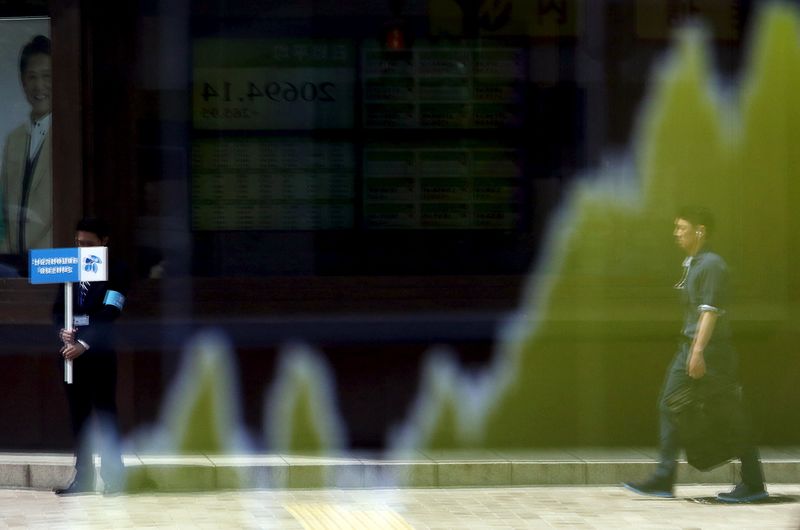Intel stock spikes after report of possible US government stake
Investing.com-- Japan’s Nikkei 225 and TOPIX indexes rose sharply in early trade on Wednesday after U.S. President Donald Trump announced a trade deal between Washington and Tokyo which will subject the latter to a 15% tariff.
The Nikkei 225 benchmark rose as much as 2.2% to a three-week high of 40,667.0 points, while the TOPIX rose over 2% to a one-year high of 2,890.08 points.
Automakers were by far the best performers on the Nikkei, with Toyota Motor (NYSE:TM) Corp (TYO:7203), the world’s biggest automaker by sales, up 7.6%. Rival Honda (NYSE:HMC) Motor Co Ltd (TYO:7267) rose 7.4%, while others including Mitsubishi Motors Corp. (TYO:7211), Subaru Corp (TYO:7270), Nissan Motor Co., Ltd. (TYO:7201), and Yamaha Motor Co Ltd (TYO:7272), rose between 6% and 10%.
Trump’s 15% levy is lower than his earlier threats of a 25% duty, offering some relief to Japanese markets. Local media reports also said that Japanese automakers will face a 15% tariff, which is smaller than Trump’s 25% tariff on the sector.
The U.S. trade deal comes just hours after Japan’s top trade negotiator, Ryosei Akazawa, met Trump at the White House on Tuesday. But the 15% tariff is still higher than Japan’s earlier demands that it be exempt from all U.S. tariffs.
Still, a relatively smaller U.S. levy offers some relief to Japanese exporters, especially automakers, who were facing increased headwinds in the U.S. due to higher import costs.
While majors such as Toyota and Honda have production facilities in America, they still export several popular models and auto parts to the country, making them subject to U.S. duties.
Among other sectors, Nippon Steel Corp (TYO:5401) rose 3%, on hopes that the company will also be exempt from Trump’s 50% tariffs on all steel imports. It was not immediately clear whether Trump’s 15% levy will be compounded with his sectoral tariffs, although the president has in the past signaled that his reciprocal tariffs on major economies will supersede his sectoral tariffs.
